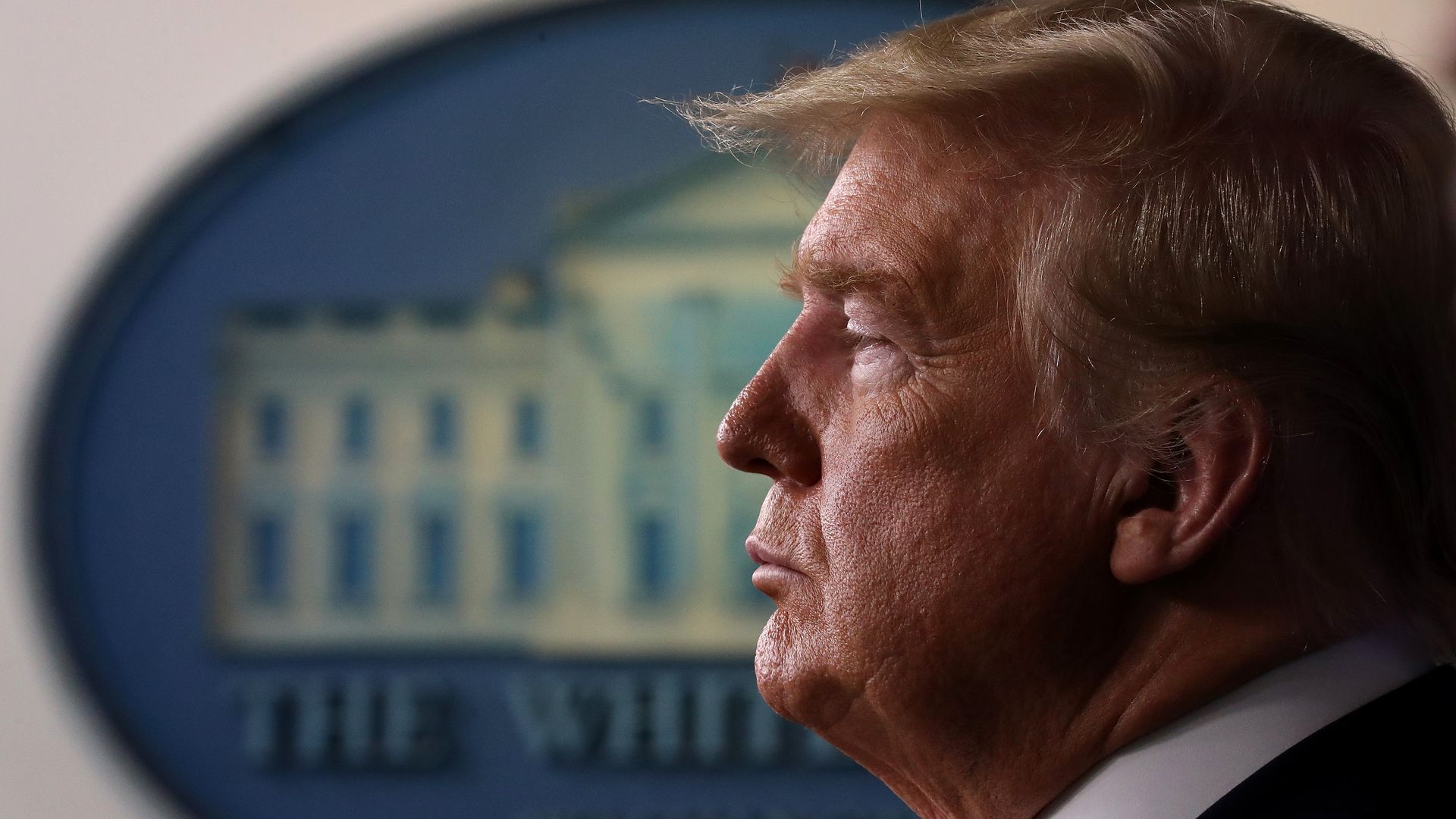Updated Mar 21, 2020 - Health
Defense Production Act: What you need to know
Add Axios as your preferred source to
see more of our stories on Google.

President Trump invoked a Korean War-era act "if we need it" as part of a plan to combat the coronavirus. Photo: Chip Somodevilla/Getty Images
